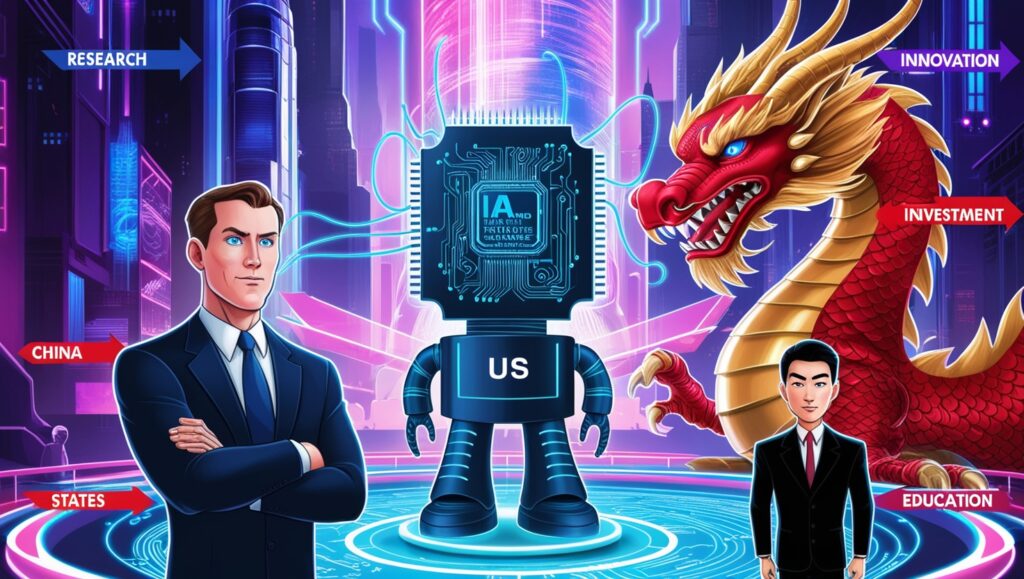Though data has always been around, there has never been a better chance to take advantage of it, to uncover previously undiscovered information and transform it into insightful new discoveries. Of course, this is made feasible by artificial intelligence.
According to a recent Wavestone survey, the combination of generative AI with data analytics has become an essential tool for enterprises. According to 88% of executives, investment on data and analytics is of the utmost importance, while 63% stated the same about generative AI. The percentage of companies using data to drive business innovation climbed from 60% to 78% in previous survey years, while the percentage of companies competing on data and analytics increased from 41% to 50%.
The survey’s authors, Thomas Davenport and Randy Bean, note that there have also been significant increases in the proportion of respondents who believe that their companies are using data to drive business innovation, compete on data and analytics, and manage data as a business asset.
According to Davenport and Bean, the percentage of firms that said they created a data-driven organization and a data and analytics culture “both doubled over the low-to-mid 20 percent range of the last several years” in the poll. The perceived business value from data and analytics is also strong (in the 80% range or higher), as is the rise in investment. We cannot conceive of a more appropriate explanation for these profound advances in confidence and culture than the introduction and public awareness of generative AI.
The shift toward data-driven businesses has been revitalized by artificial intelligence (AI), according to entrepreneurs and industry executives. This is especially true given AI’s ability to handle the enormous amounts of data that businesses produce on a daily basis, as noted by Matt McConnell, chairman and CEO of Intradiem. While data generation is not new, artificial intelligence has made it possible to monetize on it. Businesses with data control will have an advantage over those without in terms of being able to start new, profitable ventures and provide efficient answers to client issues.
According to Ziv Gafni, president and general manager of new markets at Fetcherr and a former head of tech and innovation at J.P. Morgan Chase, artificial intelligence (AI) has a role in business because it can help with market research and analyze large datasets to identify trends, gaps in the market, finances, risk, competitor intelligence, and more. AI enables data-driven, more precise business strategies and operations scaling through well-informed decision-making. By studying consumer behavior and providing modification and personalization in marketing efforts, technology is a great tool to drive client acquisition and retention.
The narrative goes considerably further. AI is enabling previously unattainable data-driven techniques and advancements. “We have always created goods and services, like watches, thermometers, and sunglasses, that were just an extension of our senses,” says Alessandro Grande, head of product at Edge Impulse and a former Arm engineer and physicist. A increasing number of companies are radically redefining user experiences today by cleverly innovating in their respective sectors.
Grande, for instance, describes collaborating with businesses that are transforming common wearable technology into ground-breaking health solutions that can give consumers the knowledge they require, right when they need them. End customers are able to perceive the world through better lenses because to these products. He claims that all of this is feasible because these clients have embraced edge AI’s potential.
According to McConnell, data can now be used “to create solutions that wouldn’t have been possible before AI.” AI can assist businesses in identifying issues early on and taking action to address them. He gives the example of how artificial intelligence (AI) can be used to evaluate data from several internal systems to identify early indicators of call center employee burnout and assist businesses in addressing it before it causes agents to resign.
The adage “satisfying an unmet need” is no longer sufficient due to AI’s predictive power, according to McConnell. Look for an open issue that you can use to your advantage to get the information required. Then, consider how AI might be used to provide or analyze the data, as someone else will likely outcompete you if you lack the data required to fix the issue.
To make products and services more autonomous, private, power-efficient, and dependable, Grande suggests applying AI close to the point of data collection. Through edge AI, a whole new range of user experiences might be unlocked and turned into viable business solutions.








